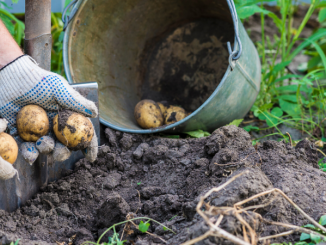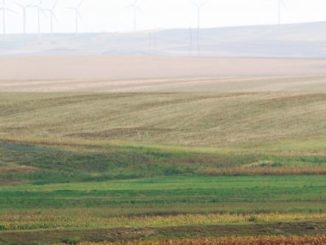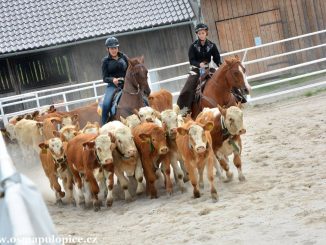Quite quickly, Ireland has seen the kind of land concentration more familiar in other parts of Europe. Various pressures are coming to bare on access to land, including the desires of the very wealthy to build up asset banks. Daniel Long is a young dairy farmer from south Tipperary, which has recently seen hugely inflated prices paid by billionaires for land. What impact does this have, including on how young people see their future in farming? Long also outlines the beginnings of a campaign to draw attention to this issue, while making the case for a Land Observatory in Ireland.
The picturesque landscape of Ireland, with its patchwork of fields bordered by hedgerows and dotted with livestock, is an image deeply ingrained in the national consciousness.
However, this idyllic scene is under threat from a trend that is reshaping the countryside not only in Ireland but across Europe: land consolidation. This process, which involves the merging of smaller agricultural plots into larger farms, is altering the fabric of rural life, impacting generational renewal, and challenging the basis of the Irish farm system.
In Ireland, the presence of billionaire buyers is exacerbating the issue, driving land prices to levels unattainable for average farmers. This shift is contributing to the decline of essential rural services, such as GAA clubs, local schools, and post offices, which are the lifeblood of community spirit and cohesion. The loss of these institutions signifies a deeper erosion of rural identity and heritage.
The consequences of land consolidation are not limited to social and economic realms; they extend to the environment. The rampant removal of hedgerows, a practice often associated with creating larger, more efficient fields, is leading to significant biodiversity loss. These hedgerows are not merely landscape features; they are vital ecosystems that support a wide array of flora and fauna. Their destruction undermines the ecological balance and the natural beauty that Ireland is renowned for.
The problem is starting to make some political headway, finally being debated in the Irish parliament (Dáil) recently. Recognising the gravity of the situation, a petition has been launched on Uplift to gauge public concern and to mandate a meeting of all interested parties, including farmers, environmentalists, scientists, political figures, and farm representatives. The petition seeks to lobby the government to urgently establish a multi-stakeholder land observatory. This body would act as a watchdog, overseeing land-related issues in Ireland and fostering collaboration among various groups to protect our most precious resource: the land.
The Need for a Land Observatory
The proposed land observatory would serve as a guardian of the public interest, ensuring that land management practices adhere to the constitutional commitment to secure economic security for as many families as possible on the land. Article 45 paragraph (v) of the 1937 Constitution underscores this principle, yet the current trend of land acquisition and consolidation seems to contradict this foundational value.
The impact of land consolidation is evident in several recent developments. While data centre proliferation makes the news and increasingly takes up energy, and water as well as land, there are numerous pressures along with the more straightforward urban encroachment.
For instance, a proposed international airport in Wicklow, for which a middle-eastern consortium plans to purchase anywhere from 240-400 hectares of land, could displace existing agricultural operations and reshape the local economy. Similarly, renewable energy developers are consolidating land for solar and biomethane projects, which, while contributing to Ireland’s energy transition, may also displace traditional farming practices. Forestry projects, often incentivised by the government, are leading to the consolidation of land for afforestation, potentially affecting biodiversity and rural community structures.
Plans for anerobic digestion suggest it may need up to 120,000 hectares of grass grown just to feed it (or more, depending on the slurry grass ratios).
In South Tipperary, particularly around Clonmel, the issue is acute, with mega-rich billionaires paying inflated prices (and even more inflated than initially reported) for much of the available land. This trend is making it increasingly difficult for local and young farmers to compete, threatening the generational renewal of the farming community and the sustainability of the Irish farm system.
The loss of local post offices and pubs, alongside other community cornerstones, is symptomatic of a broader issue: the lack of political will to address the challenges posed by land consolidation. While solutions have been suggested through the tax system, such measures are insufficient when the driving force for billionaire buyers is not profit but rather the acquisition of land itself.
SAFER Options – and more
Looking to France, the SAFER system offers a model worth considering. SAFER stands for Sociétés d’aménagement foncier et d’établissement rural, or loosely, Land Use and Rural Settlement Corporation. SAFER assesses potential land sales for their impact in advance of any sale – so it essentially regulates agricultural land in the public interest. This regulatory framework ensures that agricultural land is kept for farming purposes and supports the entry of young farmers into the market. It represents a balanced approach, one that Ireland could adapt to its unique context, to safeguard the interests of small-scale farmers and rural communities. (Read about SAFER and other interesting and innovative French initiatives in the article below)
Four Takeaways From our Rural Resilience Gathering in North West France
In Scotland, efforts are finally being made to start to break up one of the most concentrated land bank in Europe. Community buy-outs have been initiated. There, a Land Commission was established in 2017. Part of its work included developing this report this report on SAFER which also notes a range of regulatory changes in the 1960s which helped distribute land ownership in rural France.
According to this 2023 report : “The SAFER can be considered equivalent to a land bank purchasing and storing lands before redistributing them to individual buyers in a bid to consolidate land parcels and render French agriculture more effective. The regional SAFERs are private sector companies upon which the State and the Parliament have bestowed a public interest function. The SAFERs conduct transactions in farmland and rural property under the authority of representatives of the government (The Finance Ministry and the Ministry of Agriculture). The SAFERs operate on the profits from sales but they do not pay dividends to shareholders. SAFER shareholders include Crédit Agricole, agricultural companies, the state and the region.”
Ireland has had a Land Commission for many decades, which was only disbanded in 1999.
Another noteworthy initiative is the proposal by European Coordination of la Via Campesina (ECVC) for a Land Use Directive. The directive “outlines how EU institutions can implement fair, democratic and sustainable land policies to combat the economic, ecological and climate crises and guarantee food sovereignty, as without access to land, farmers cannot produce good quality food for the population.
As recognised by the Court of Justice of the European Union (CJEU) jurisprudence, agricultural land is not a commodity like any other; it is a precious, scarce and threatened resource” as ECVC said at the launch.
ECVC Land Use Directive proposal
Conclusion
The petition is more than a call for signatures; it is a rallying cry for those who envision a sustainable and equitable future for Irish land use. It is an invitation to join a movement that seeks to put limits on the purchase of land by the mega-wealthy and to advocate for policies that prioritize the well-being of rural Ireland.
The meeting of stakeholders, catalysed by the petition, will be a critical juncture. It will provide a forum for diverse voices to converge, discuss, and forge a pathway forward. The challenges are significant, but the collective resolve to address them is stronger. Through collaboration and a shared commitment to the values enshrined in our Constitution, it is possible to craft a new narrative for agriculture in Ireland—one that respects the legacy of past generations, supports the aspirations of the present, and preserves the land for the future.
 Issues surrounding land consolidation in Ireland are multifaceted, impacting the economic viability of farms, the vitality of rural communities, and the health of our ecosystems. The petition and the push for a land observatory represent a crucial step towards addressing these challenges. It is an opportunity for all stakeholders to come together and advocate for a balanced approach to land management, one that honours our constitutional commitments and ensures that the land we all value is managed with care and foresight for generations to come. The time to act is now, to ensure that the rural landscapes of Ireland remain vibrant, diverse, and secure for all who call them home.
Issues surrounding land consolidation in Ireland are multifaceted, impacting the economic viability of farms, the vitality of rural communities, and the health of our ecosystems. The petition and the push for a land observatory represent a crucial step towards addressing these challenges. It is an opportunity for all stakeholders to come together and advocate for a balanced approach to land management, one that honours our constitutional commitments and ensures that the land we all value is managed with care and foresight for generations to come. The time to act is now, to ensure that the rural landscapes of Ireland remain vibrant, diverse, and secure for all who call them home.
Daniel Long is dairy farmer in Tipperary and a founding member of Greenfarmer coop, a farmer-led initiative. He is qualified in climate and sustainability, secretary of the Tipperary PPN (Public Participation Network) and host each week of the farm programme on Tipp Mid West radio.
Daniel also participated in Feeding Ourselves 2024 this year, where the case for Land Observatories emerged organically (see below), from considerations of Nitrogen budgets, landscape level environmental thinking more generally, and seeing the positives in initiatives such as ACRES cooperation and other agri-environmental schemes.
More
Cultivating The Future Together – ARC’s Rural Resilience Gathering in France
Access to Land: Looking to Europe to Secure Local Farmland? Part 1
Your Land, My Land, Our Land: Using International Legal Tools
Access to Land: More Resilient Agriculture – Without Any EU Legislation? (Part 2)
Where Soya has Scale – Ukraine, Big Ag and Land Concentration
Quietness & Adaptability – Ukrainian Peasants’ Responses to Land Grabbing & Agribusiness Expansion
European Parliament Adopts Report Against Land Concentration








